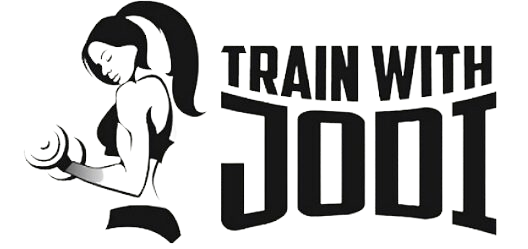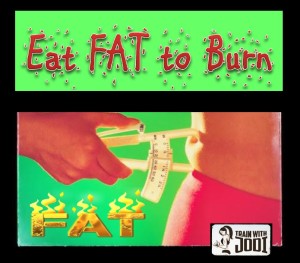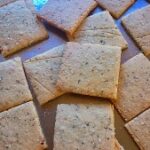How wonderful! Research reveals eating fat is our friend.
Having lived the majority of my life following conventional wisdom (I implemented a low fat, high protein, low carb diet to try to stay healthy), I feared fat! Fat was the enemy; fat was the devil; fat was the plague. Everywhere I turned, I was convinced that the fat you eat was the fat you wear. I avoided it at all costs and always looked for the “fat-free” versions of food, never realizing what I was doing to my body, never realizing the actual unhealthy and unnatural mechanism it took to remove natural fat from food to make it into the palatable “fat free” versions for consumption, foods I (NOW) like to call “Frankenfoods!” It was until I started doing my own research and body/nutrient tweaking that I discovered I had been fed and believed a bunch a bull.
Nonetheless, even after research and my own trials and errors solidified fat was my friend (and it was for what my body was starving), it was still a difficult transition. When I switched to an ancestral-style diet, incorporating fat was the hardest roadblock for me to breakthrough. For so long, I had avoided high-fat meats, butters, all oils, and bacon, fearing it would put fat directly onto my thighs. However, after I started eating it, the opposite happened; I lost fat and gained muscle. So what is going on here?
MCT Fats- Your Best Friend
 In The Journal of Nutrition , The International Journal of Obesity, The American Journal of Clinical Nutrition here and here, researchers demonstrated that by simply adding MCT oil to the diet, it increased fatty acid oxidation, without any changes to diet or exercise. Eating fat, they found, burns fat. Most fat takes more than three hours before the body can access it for fuel or storage. What is unique about MCT (medium chained triglycerides) fat is its rapid absorption, making it available immediately. Thus, MCT’s also contribute to ketone production (something in which can be very hard to do).
In The Journal of Nutrition , The International Journal of Obesity, The American Journal of Clinical Nutrition here and here, researchers demonstrated that by simply adding MCT oil to the diet, it increased fatty acid oxidation, without any changes to diet or exercise. Eating fat, they found, burns fat. Most fat takes more than three hours before the body can access it for fuel or storage. What is unique about MCT (medium chained triglycerides) fat is its rapid absorption, making it available immediately. Thus, MCT’s also contribute to ketone production (something in which can be very hard to do).
But Not WITH Carbs!
Be careful though, eating a lot of fat in combination with a lot of carbs will, indeed, significantly increase your fat cells. If you want to eat fat to lose fat, you must also avoid too many carbohydrates. Even eating carbs with breakfast can considerably reduce your body’s ability to burn fat for the remained of the day; for, carbs signal the production of insulin, which is an anabolic hormone, meaning it grows things, like fat cells. However, we can use its anabolic abilities to our advantage with nutrient-timing and CBL to have it work for us (growing muscle) instead of against us (growing fat cells).
And Not Too Much Protein
One even needs to be careful with too much protein, for (in the absence of adequate fat) it too can increase insulin production. Always make sure you are high on fat, low-med on protein, and super ultra-low on carbs (under 30 grams of net carbs is a general guideline). Below is a pyramid for a general idea on percentage of calories you should consume. 
(Though definitely NOT necessary) For those of you who particularly love figuring out your macros to an exact science, here is a nifty calculation chart:
Weight (lbs) X 10 X (activity level) = TOTAL CALORIES
So for a 150 lb person who is between very light and low active he or she would need approximately 2000 calories (150 x 10 x 1.3).
You then take this number (2000) and multiply it by the percentages in the pyramid. This will give you your calories allotted per group. Then divide the fat calories by 9; carbs by 4; and protein by 4. This will give you the grams per group. For the person consuming a 2000 calorie diet this would translate into approximately 150 grams of protein, 140 gram of fat, and 30 grams of carbs. *Remember, you can typically eat as much fibrous veggies you’d like, for fiber is the only type of carbohydrate that your body cannot digest; therefore, it does not provide energy or increase blood sugar levels.
Activity Levels:
(1.2) Very Light: seated and standing activities, office work, no vigorous activity
(1.5) Low Active: same as above but with 30 min of moderate daily activity
(1.7) Active: same as above but with additional 3 hours of activity
(1.9) Heavy: planned vigorous activities, physical labor, full-time athletes, hard-labor professions such as steel or road workers
When Can I Eat Carbs?
Staying ultra-low carb for too long, causes your metabolism and fat-burning abilities to plummet. This is where having a carb night becomes beneficial. By eating carbs one night per week (no more needed unless you are an avid heavy lifter), you can still reap all the benefits of fat loss. To learn more about this process and how you can get your carbs to work for you, see my post on carbohydrate back-loading.
Are There Any Fats To Avoid?
Yes! Most definitely. You should avoid any highly processed oils like vegetable, canola, soybean, margarine, seed & nut oils. For more on which fats to eat and which to specifically avoid, check out this article written by CBL author, John Kiefer.



